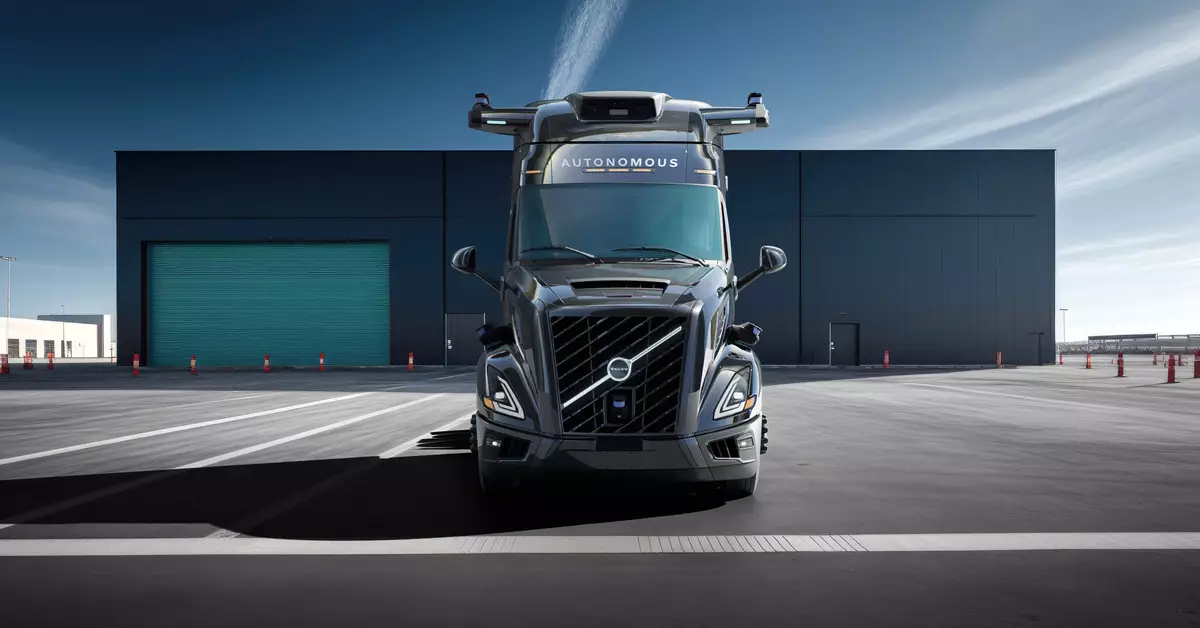Self-driving technology has been a hot topic for the transportation industry, with many companies investing heavily in research and development to bring autonomous vehicles to the market. Recently, Volvo unveiled its first “production-ready” self-driving truck in partnership with Aurora, a leading autonomous driving technology company. This collaboration aims to revolutionize long-haul transportation by introducing Level 4 autonomous driving systems to commercial trucks.
Volvo’s new VNL Class 8 semi truck serves as the foundation for the autonomous version developed in collaboration with Aurora. The truck is equipped with a sophisticated array of sensors and cameras that power Aurora’s autonomous driving technology. This Level 4 system allows the truck to operate without the need for a human driver, marking a significant milestone in the development of self-driving trucks.
One key aspect highlighted by both Volvo and Aurora is the purpose-built nature of the self-driving truck. This design approach is crucial for mass production and scalability, ensuring that the technology can be integrated seamlessly into future models. Nils Jaeger, president of Volvo Autonomous Solutions, emphasized that this standardized global platform will enable the introduction of autonomous technology across all Volvo Group truck brands and various geographical locations.
Manufacturing and Deployment Plans
Volvo plans to manufacture the self-driving trucks at its New River Valley plant in Dublin, Virginia, which is currently the company’s largest production facility. With Volvo being a major player in the Class 8 truck market, the partnership with Aurora signifies a significant step towards mass production of autonomous trucks. Aurora aims to deploy 20 fully autonomous trucks this year, with plans to scale up to 100 trucks by 2025 and collaborate with other companies for wider adoption by 2027.
Challenges and Opportunities
While the prospect of autonomous trucks holds immense potential, the industry has faced several challenges along the way. Companies investing in autonomous technology have encountered obstacles such as delayed timelines, funding issues, and public skepticism. Despite these challenges, Aurora has managed to maintain a relatively low profile in comparison to some of its competitors. The company’s strategic partnerships and focus on safety have positioned it as a key player in the autonomous driving market.
In terms of financial performance, Aurora reported a net loss of $165 million in the first quarter of 2024, showing a 16 percent improvement compared to the previous year. This indicates the company’s commitment to financial stability and long-term growth in the autonomous vehicle sector. With a clear roadmap for future deployment and a strong partnership with Volvo, Aurora is well-positioned to lead the way in the development of self-driving trucks.
Overall, the partnership between Volvo and Aurora represents a significant milestone in the advancement of autonomous technology in the commercial trucking industry. By combining Volvo’s expertise in truck manufacturing with Aurora’s cutting-edge autonomous driving systems, the collaboration opens up new possibilities for enhanced safety, efficiency, and sustainability in long-haul transportation. As the industry continues to evolve, the future of self-driving trucks looks promising, with Volvo and Aurora at the forefront of innovation.


Leave a Reply
You must be logged in to post a comment.